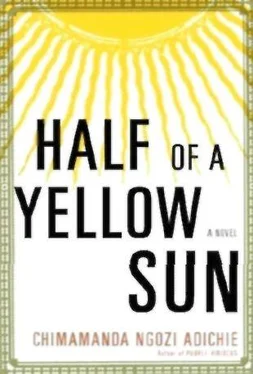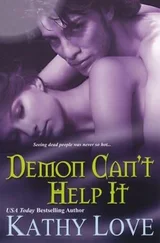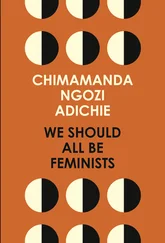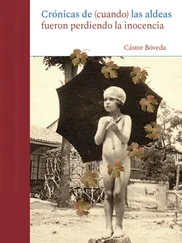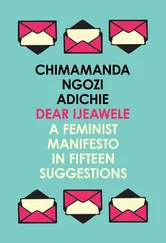She climbed into the car and stared at the cashew trees.
"Will Aunty Kainene come to Nsukka?" Baby asked.
Olanna turned and looked carefully at Baby's face, to search for clairvoyance, a sign that Baby knew Kainene was coming back. At first she thought she saw it, and then she was not sure she did.
"Yes, my baby," she said. "Aunty Kainene will come to Nsukka."
"Is she still trading at afia attack?"
"Yes."
Odenigbo started the car. He took off his glasses and wrapped them in a piece of cloth. Nigerian soldiers, they had heard, did not like people who looked like intellectuals.
"Can you see well enough to drive?" Olanna asked.
"Yes." He glanced behind at Ugwu and Baby before easing the car out of the compound. They passed a few checkpoints manned by Nigerian soldiers, and Odenigbo muttered something under his breath each time they were waved past. At Abagana, they drove past the destroyed Nigerian fleet, a long, long column of burned and blackened vehicles. Olanna stared. We did this. She reached out and held Odenigbo's hand.
"They won but we did this," she said, and realized how odd it felt to say they won, to voice a defeat she did not believe. Hers was not a feeling of having been defeated; it was one of having been cheated. Odenigbo squeezed her hand. She sensed his nervousness in the tense set of his jaw as they approached Abba.
"I wonder if my house is still standing," he said.
Bushes had sprung up everywhere; small huts were completely swallowed in browned grass. A shrub was growing at the gate of their compound and he parked near it, his chest rising and falling, his breathing loud. The house still stood. They waded through thick drying grass to get to it and Olanna looked around, half fearing she would see Mama's skeleton lying somewhere. But his cousin had buried her; near the guava tree there was a slight elevation of earth and a cross roughly made from two branches. Odenigbo knelt down there and pulled out a tuft of grass and held it in his hand.
They drove to Nsukka on roads pockmarked with bullets and bomb craters; Odenigbo swerved often. The buildings were blackened, roofs blown off, walls half standing. Here and there were black carcasses of burned cars. An eerie quiet reigned. Curved profiles of flying vultures filled the horizon. They came to a checkpoint. Some men were cutting the tall grass on the roadside, their cutlasses swinging up and down; others were carrying thick wood planks up to a house with walls that looked like Swiss cheese, riddled with bullet holes, some large, others small.
Odenigbo stopped beside the Nigerian officer. His belt buckle gleamed and he bent to peer into the car, a dark face with very white teeth.
"Why do you still have Biafran number plates? Are you supporters of the defeated rebels?" His voice was loud, contrived; it was as if he was acting and very aware of himself in the role of the bully. Behind him, one of his boys was shouting at the laboring men. A dead male body lay by the bush.
"We will change it when we get to Nsukka," Odenigbo said.
"Nsukka?" The officer straightened up and laughed. "Ah, Nsukka University. You are the ones who planned the rebellion with Ojukwu, you book people."
Odenigbo said nothing, looking straight ahead. The officer yanked his door open with a sudden movement. "Oya! Come out and carry some wood for us. Let's see how you can help a united Nigeria."
Odenigbo looked at him. "What is this for?"
"You are asking me? I said you should come on come out!"
A soldier stood behind the officer and cocked his gun.
"This is a joke," Odenigbo muttered. "O na-egwu egwu."
"Come out!" the officer said.
Olanna opened her door. "Come out, Odenigbo and Ugwu. Baby, sit in the car."
When Odenigbo climbed out, the officer slapped his face, so violently, so unexpectedly, that Odenigbo fell against the car. Baby was crying.
"You are not grateful that we didn't kill all of you? Come on carry those wood planks quickly, two at a time!"
"Let my wife stay with our daughter, please," Odenigbo said.
The sound of the second slap from the officer was not as loud as the first. Olanna did not look at Odenigbo; she carefully focused on one of the men carrying a pile of cement blocks, his thin naked back coated in sweat. Then she walked to the pile of wood planks and picked two up. At first she staggered under the weight-she had not expected that they would be so heavy-then she steadied herself and began to walk up to the house. She was sweating when she came down. She noticed the hard eyes of a soldier following her, burning through her clothes. On her second trip up, he had come closer to stand by the pile.
Olanna looked at him and then called, "Officer!"
The officer had just waved a car on. He turned. "What is it?"
"You had better tell your boy here that it will be better for him not to even think about touching me," Olanna said.
Ugwu was behind her, and she sensed his intake of breath, his panic at her boldness. But the officer was laughing; he looked both surprised and impressed. "Nobody will touch you," he said. "My boys are well trained. We are not like those dirty rebels you people called an army."
He stopped another car, a Peugeot 403. "Come out right now!"
The smallish man came out and stood by his car. The officer reached out and pulled his glasses from his face and flung them into the bush. "Ah, now you cannot see? But you could see enough to write propaganda for Ojukwu? Is that not what all of you civil servants did?"
The man squinted and rubbed his eyes.
"Lie down," the officer said. The man lay down on the coal tar. The officer took a long cane and began to flog the man across his back and buttocks, ta-wai, ta-wai, ta-wai, and the man cried out something Olanna did not understand.
"Say Thank you, sah!" the officer said.
The man said, "Thank you, sir!"
"Say it again!"
"Thank you, sir!"
The officer stopped and gestured to Odenigbo. "Oya, book people, go. Make sure you change those number plates."
They hurried silently to the car. Olanna's palms ached. As they drove away, the officer was still flogging the man.
Ugwu stooped downbeside the wildly overgrown bush with the white flowers and stared at the pile of burned books. They had been heaped together before being set on fire, so he dug through with his hands, to see if the flames had missed any underneath. He extricated two whole books and wiped the covers on his shirt. On the half-burned ones, he still made out words and figures.
"Why did they have to burn them?" Olanna asked mildly. "Just think of the effort."
Master squatted beside him and began to search through the charred paper, muttering, "My research papers are all here, nekene nke, this is the one on my rank tests for signal detection…" After a while, he sat down on the bare earth, his legs stretched in front of him, and Ugwu wished he had not; there was something so undignified, so unmasterly about it. Olanna was holding Baby's hand and looking at the whistling pine and ixora and lilies, all shapeless and tangled. Odim Street itself was shapeless and tangled, with both sides knotted in thick bush. Even the Nigerian armored car, left abandoned at the end of the street, had grass growing from its tires.
Ugwu was first to go into the house. Olanna and Baby followed. Milky cobwebs hung in the living room. He looked up and saw a large black spider moving slowly in its web, as if uncaring of their presence and still secure that this was its home. The sofas and curtains and carpet and shelves were gone. The louvers, too, had been slipped off and the windows were gaping holes and the dry harmattan winds had blown in so much dust that the walls were now an even brown. Dust motes swam ghostlike in the empty room. In the kitchen, only the heavy wood mortar was left behind. In the corridor, Ugwu picked up a dust-coated bottle; when he raised it to his nose it still smelled of coconuts. Olanna's perfume.
Читать дальше
